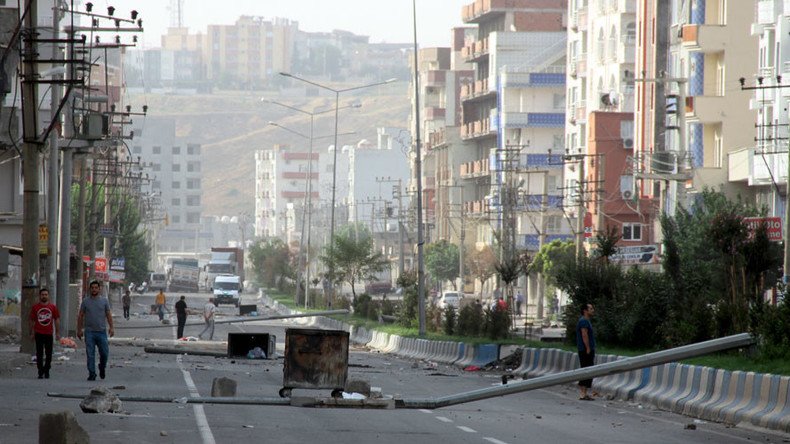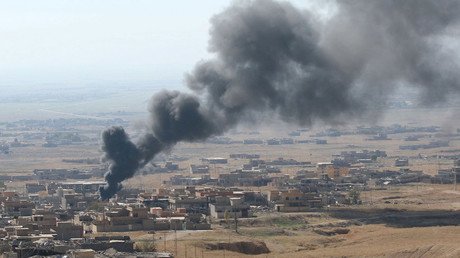'UN should open fact-finding mission on human rights violations in Cizre'

As a human rights organization, the main problem was that we had no chance to monitor what was going on in Cizre, Osman Isci, from the Human Rights Association in Turkey.
Turkey has witnessed over a 7,500 percent rise in civilian casualties from explosive weapons in 2015, according to a new report.
The organization Action On Armed Violence recorded 856 civilian deaths and injuries associated with explosives last year, compared to only 11 in 2014.
A human rights group in Turkey has submitted a report to the UN about grave human rights violations by the Turkish military during its campaign against the outlawed Kurdistan Workers Party in the south east of the country, and during curfews imposed in the region by Ankara.
Activists from a number of human rights watchdogs traveled to the city of Cizre, where they heard eyewitness accounts of military operations.
RT discussed this with Osman Isci, from the Human Rights Association in Turkey, which put together the report.
RT: This study focuses on the curfew in Cizre. What were the most shocking revelations that you encountered?
Osman Isci: The curfew has been an issue in Turkey, especially in the south east region, since July because since July there has been an increase in the armed conflict between the Turkish government and the armed PKK organization.
First, we experienced no military zones, temporary security zones, then curfews were declared. And at the first period, there was a short period like three days. But in Cizre we experienced a curfew for 80 days. And when our delegation visited Cizre together with other human rights organizations and activists, we realized and we observed, unfortunately, houses were destroyed, almost all of them, and civilians were killed… And there was no chance to access. For us, as a human rights organization, the main problem was that we had no chance to monitor what was going on there. So, there was a total blackout… After the curfew, what we saw there... civilians were killed.
RT: What reaction do you expect from the United Nations after they review the report?
OI: When we handed this report to the UN, we asked not only the UN but other relevant and capable bodies to ask questions of the Turkish government at first to ensure that those who were responsible for these serious and mass violations be brought to justice. We also asked the Turkish authorities to investigate administratively and judicially these serious human rights violations. If there is no response to these questions, we ask the international community, in this case, the UN, to conduct fact-finding missions together with national observers, national human right activists in Turkey to observe and monitor what is going on. In fact, that is what the UN High Commissioner when he addressed the Human Rights Council last month, he also said there should be international observers and they should be allowed by the government and they should be able to conduct an effective fact-finding mission. That is what we expect and it is part of the international human rights movements’ capacity and mandates.
The statements, views and opinions expressed in this column are solely those of the author and do not necessarily represent those of RT.













